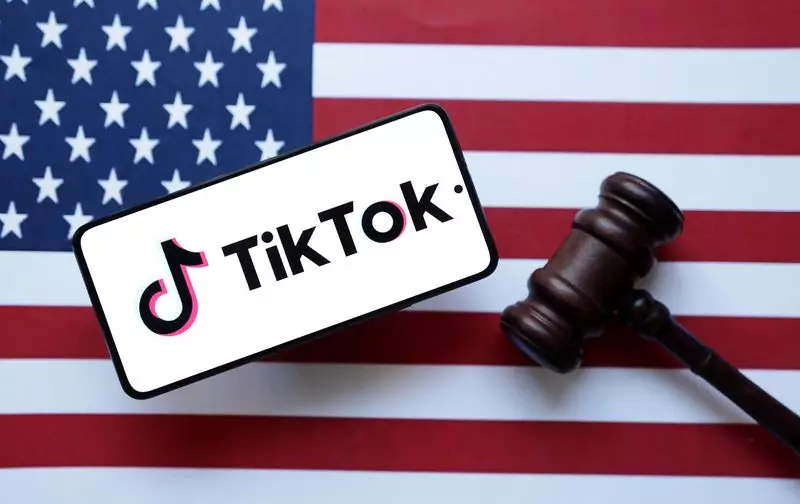The recent ban on TikTok, following the U.S. Supreme Court ruling against its parent company ByteDance, has created significant ripples across various sectors in America. This action stems from growing national security concerns surrounding the app, impacting the lives of millions and prompting reactions from advertisers to government officials. As the situation continues to evolve, it is important to examine the implications this ban holds for users, businesses, and international trade relations.
The ruling against TikTok effectively prohibits the application from being available to new users, while existing users cannot access updates or support. This sudden restriction is defined under legislation aimed at addressing national security threats emanating from foreign technology applications. The rationale behind this stringent approach is worrying for many, as the massive engagement levels of TikTok — with a staggering 170 million American users — highlight the app’s significant role in digital interaction.
Moreover, the timeline set for the ban indicates a pressing deadline for ByteDance. The company is given until January 19 to either divest itself of TikTok or face a complete shutdown in the United States. The uncertainty surrounding potential resolutions, especially with President-elect Donald Trump’s statements on seeking a political resolution to keep TikTok operational, adds another layer of unpredictability to the matter.
For TikTok users, the ban has translated into not just an inconvenience but a staggering disruption of their social media presence. Content creators who built their brands on the platform find themselves scrambling to migrate their audiences to alternative platforms like Instagram and YouTube. The hit is especially hard for those who monetize their content, as the abrupt loss of TikTok could undermine their income sources.
Interestingly, while hopeful users have attempted to bypass the ban through virtual private networks (VPNs), reports indicate that such efforts have largely failed. This underscores the robustness of the ban; users cannot even rely on traditional workarounds commonly used to access blocked content.
As alternative platforms like Xiaohongshu begin to grow in appeal among frustrated TikTok users, the social media landscape in the U.S. could begin to experience notable shifts. Content creators may find new homes and communities, resulting in a realignment of influencer marketing dynamics.
The advertising sector has not remained unaffected by TikTok’s turmoil. As the impending ban creates immediate challenges, advertisers are actively devising contingency plans to safeguard their campaigns. The urgency of the situation has been described by marketing professionals as a “hair on fire” moment, signifying the high stakes at play.
With over $11 billion in annual ad investments at potential risk, brands are heavily scrutinizing alternative channels and adjusting their strategies. Organizations grappling with shifts are casting watchful eyes on competitors such as Meta and Snap to gauge the impact of TikTok’s absence on their business symposiums.
Meanwhile, TikTok has still been actively engaging advertisers, highlighting new tools and features to stimulate investment. Despite their proactive approach, the impending ban leaves the advertising space in disarray, with many brands evolving their strategies on the fly.
The ramifications of this ban extend beyond social media and advertising concerns, potentially straining U.S.-China relations further. Trade dialogues between the two nations, already fraught with tension, may be exacerbated by this technology ban. Experts suggest that this is not a surprise move; discussions surrounding a TikTok ban have been ongoing for several years.
President Trump may have a dual strategy for his administration: Using the TikTok issue as leverage to extract concessions from China while attempting to forge a political resolution to ward off unemployment in the tech sector. Analysts have highlighted that reversing the ban could endow the Trump administration with additional bargaining power in negotiations with China.
In a landscape filled with uncertainty, discussions surrounding TikTok’s potential buyers have emerged. Despite assertions from TikTok that it cannot be sold off from ByteDance, interest from various investors has surfaced. Notably, billionaire Frank McCourt and potentially Elon Musk have been mentioned among those considering an acquisition.
Such maneuvers demonstrate the intense competitive dynamics at play, with various stakeholders hoping to harness TikTok’s popularity, even in its constrained state. The desire to salvage TikTok points to an ongoing demand for a platform that resonates with the younger audience despite regulatory challenges.
The suspension of TikTok has thrown users, advertisers, and international relations into a whirlwind of uncertainty. The ultimate outcome remains unclear, but the repercussions of this ban signal a pivotal moment in how technology companies are perceived, highlighting the intersections of security, commerce, and culture in an increasingly interconnected world.

